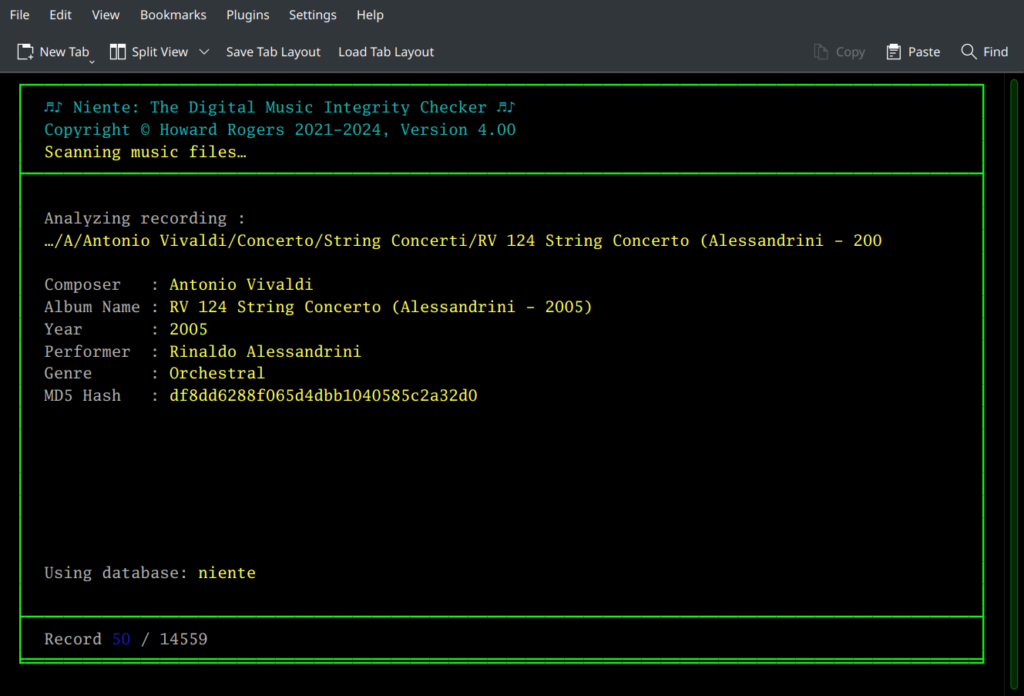Niente Version 4 : Fixup Scripts
1.0 Introduction
It is a core tenet of Niente that it only ever reads and analyzes your FLAC files: it never modifies them. However, by its nature, Niente will reveal past poor tagging decisions which, perhaps, affect many hundreds or thousands of recordings and which would be real pain to have to fix manually. In my case, for example, my first run of Niente Version 3 (released way back in 2023) revealed this:
That's 17,000+ recordings of which over 8,100 have 'Album Art size issues' (see Statistic 9). The same statistic is now visible in Niente Version 4 with the Statistic Label of O1. [...]









